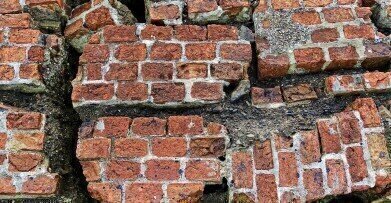Environmental Laboratory
How Has COVID-19 Affected Seismic Activity?
May 31 2020
One of the more positive side effects of the quarantine measures imposed to restrict the spread of COVID-19 has been a reduction in air pollution. However, a less publicised environmental implication of the virus surfaced at the beginning of the month: a slump in seismic activity. Seismometer stations around the UK have recorded a significant drop-off in ground vibrations since Boris Johnson introduced lockdown measures on the 23rd March.
While seismometers are usually employed in measuring earthquakes, they also pick up on background hum caused by industry, transportation and other anthropogenic means. Scientists involved in the study have revealed that that hum is currently half of what it had been prior to the commencement of quarantine, and that the lull could provide an unprecedented opportunity to learn more about the interior workings of the Earth.
An unexpected respite
Normally, the rumble caused by human activity – from pedestrians and private vehicles to lorries, trains and big industry – appears on a seismometer between the frequencies of 5Hz and 15Hz. However, a study conducted by Imperial College London has demonstrated that those levels dropped away dramatically in the immediate aftermath of the imposition of lockdown.
By analysing the data provided by 127 instruments across the nation, Dr Stephen Hicks and his team found that current seismic activity is around half of what it was in mid-January. The data was collected from a mixture of scientific stations belonging to the British Geological Survey (BGS) and a network of open source citizen science seismometers, each of which is equipped with Raspberry-Pi microcomputers.
“You'd have to go back decades to see noise levels like this,” explained Dr Hicks. “You'd often get quiet times in the evenings or at weekends but not continuously, for weeks.” Of course, decades ago we were not endowed with the same technology as we have today, presenting a golden chance to learn more about the planet.
An opportunity for study
A similar phenomenon has been observed around the globe. An international community of seismologists, led by Dr Thomas Lecocq of the Royal Observatory Belgium has over 85 participants in more than 30 nations around the world, each of whom is sharing the data gathered in their area. The results have been largely uniform: an unprecedented drop-off in seismic activity.
While much of the media attention on the repercussions of coronavirus have focused on its economic ramifications, there is also an opportunity for the scientific community to use this lull to learn more about earthquakes of a low magnitude and volcanic activity, both of which are often drowned out by human vibrations. Researchers in Sicily, for example, are trying to ascertain more information about the inner workings of Mount Etna, Europe’s largest volcano.
However, some experts have recommended caution. “In theory, [the reduction in seismic noise] could lead to new insights, since much of our understanding about the internal structure of the Earth comes from observations of earthquakes,” says Dr Brian Baptie, head of seismology at BGS. “However, this generally relies on observations over long periods of time, whereas the window of time where our detection capability might be improved is likely to be relatively short.”
Digital Edition
IET 34.2 March 2024
April 2024
Gas Detection - Biogas batch fermentation system for laboratory use with automatic gas analysis in real time Water/Wastewater - Upcycling sensors for sustainable nature management - Prist...
View all digital editions
Events
Apr 22 2024 Hannover, Germany
Apr 22 2024 Marrakech, Morroco
Apr 23 2024 Kuala Lumpur, Malaysia
Apr 23 2024 Kintex, South Korea
Apr 23 2024 Edmonton, AB, Canada


















